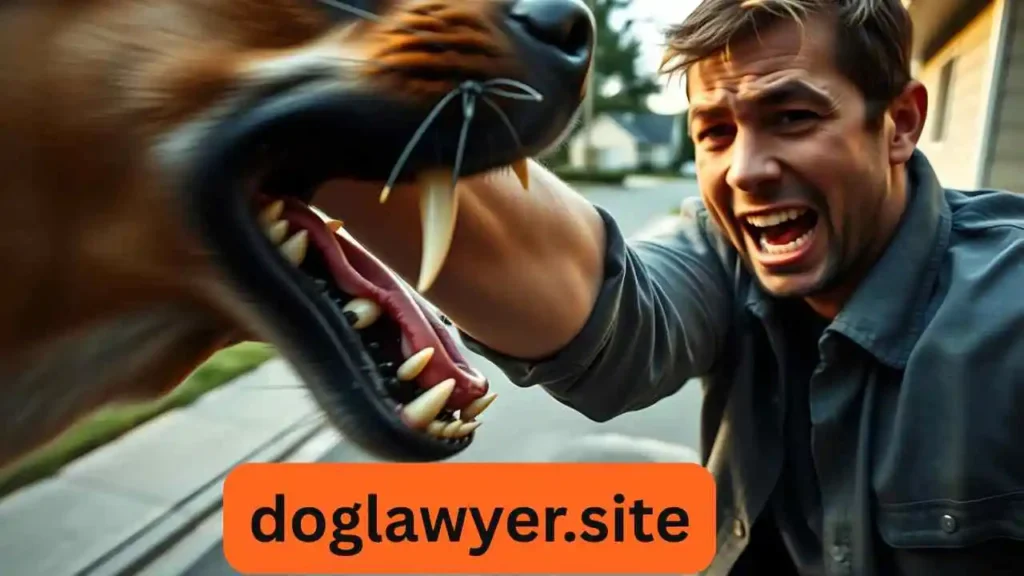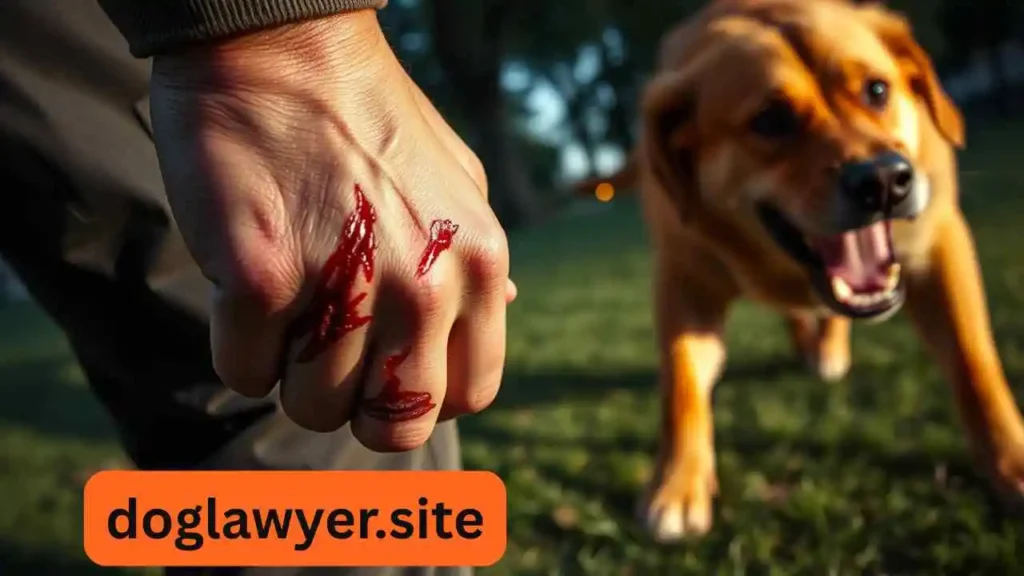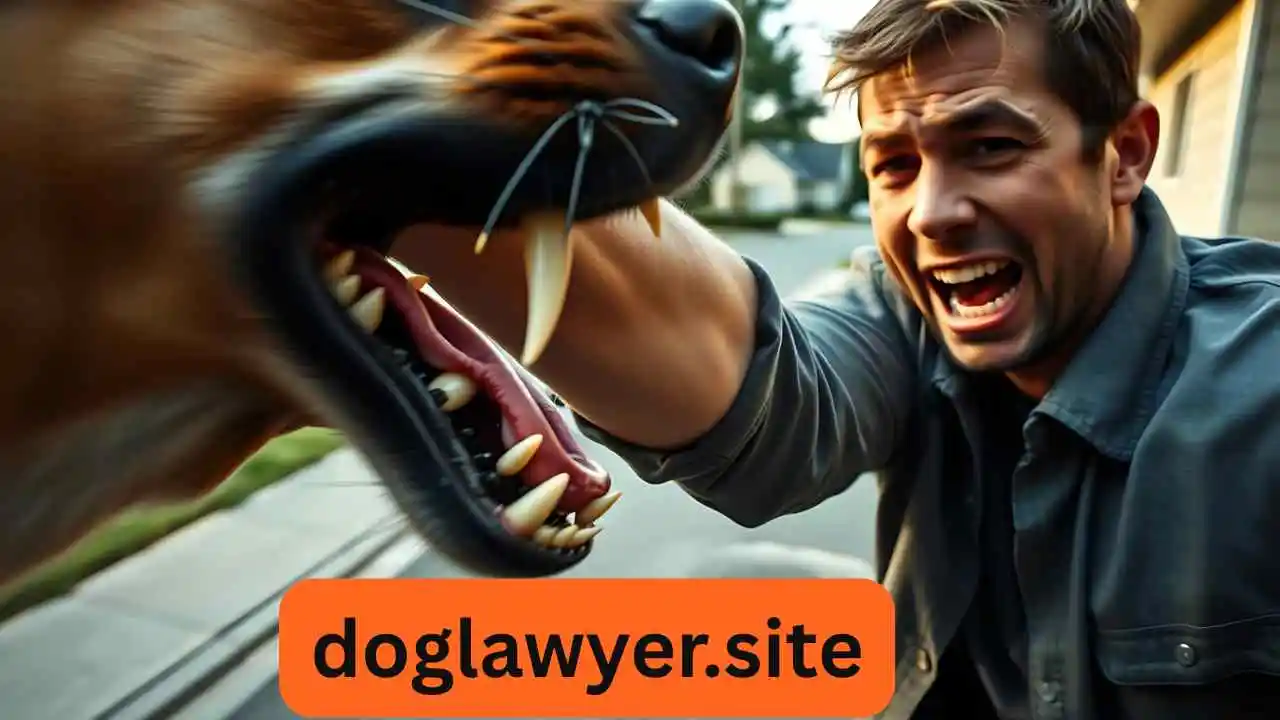Dog attacks are traumatic. That’s the simple truth. One moment you’re walking in a park, and the next—chaos. People often say things like “Oh, it’s just a dog, it didn’t mean it,” but when you’re the one bleeding, bruised, and maybe even permanently scarred… that sentiment feels hollow.
There is more to dog attacks than just the harm they cause. There’s the fear, the flashbacks, the anxiety that creeps in every time you hear barking. I once met a man who hadn’t set foot in a park since his attack. He used to go daily. Now? Avoids grass altogether. Strange, isn’t it, how deeply things can root themselves?
Let’s walk through what really matters—legally and practically—if you or someone you love has been bitten or attacked by a dog.
Table of Contents
7 Expert Dog Attack Legal Advice
Why Dog Attacks Aren’t Just “Accidents”
Sure, accidents happen. But calling a dog attack an “accident” can minimize real harm. These events are often preventable. A loose gate, no leash, an aggressive dog left alone. Each of those choices? They carry responsibility.
Quick Stats on Dog Attacks in the U.S.
Let’s take a moment to think. The CDC believes that there are almost 4.5 million attacks by dogs in the United States each year. Almost 800,000 of them require medical care. And children? They’re the most common victims. It’s not rare—it’s rampant.
First Steps After a Dog Attack
Seek Immediate Medical Attention
Don’t imagine it’s okay, even if it feels like a slight the national infrastructure plan ( Infections, scarring, and even nerve damage can result from dog bitesAnd honestly, there’s something about having medical documentation that strengthens your legal standing later.

Report the Incident to Authorities
Report it to the local authorities, such as the police or animal control. It’s about record-keeping and safety. If that dog has a history, your report could prevent the next attack.
Document Everything Right Away
Time fuzzes memory. So, take notes: the date, the location, what you were doing, what the dog looked like, who was around. Even your own emotional state—write that down. It paints a fuller picture later.
Legal Responsibility – Who’s Liable?
The Dog Owner’s Duty
In most cases, the dog’s owner holds primary responsibility. If they knew their dog was aggressive, or failed to control it—yeah, that’s on them.
What About Landlords or Property Managers?
This is where things get murky. If the landlord knew about a dangerous dog and did nothing, they could share the blame. But proving knowledge? That’s the tricky bit.
“One Bite Rule” vs. “Strict Liability” States
Some states give dogs one “free” bite before the owner is liable—if they didn’t know the dog was dangerous. Others say nope, first bite or fiftieth, you’re still responsible. Where you live matters. A lot.
Tip 1: Don’t Talk to Insurance Adjusters Alone
How They Spin Your Words
You might think it’s just a friendly chat. It’s not. Their job? To minimize payout. A straightforward “I’m okay” could be misinterpreted as “no injury occurred.”
Get a Lawyer Before Saying Anything
Seriously. A quick consult before you talk could make a world of difference. Lawyers know the traps. You probably don’t—yet.
Tip 2: Save All Medical Records
Even the Small Stuff Can Matter
That bandage receipt, your prescription, the urgent care visit—all of it counts. The slightest detail can sometimes make the strongest argument.
Future Medical Needs Count Too
If your injuries lead to surgery months down the line, that’s still related. Keep track. Keep receipts. Keep track of your travel time to and from appointments as well.
Tip 3: Know Your State Laws
State Laws Differ More Than You Think
From California to Kansas, laws vary wildly. Some states lean victim-friendly. Others, not so much. That’s why local legal advice isn’t just helpful—it’s essential.
Time Limits on Filing Claims (Statutes of Limitation)
You usually have 1–3 years depending on your state. Miss the deadline? That’s it. No case. No compensation.
Tip 4: Take Photos – Lots of Them
Injuries, Location, the Dog, Everything
Snap the bite, the torn clothes, even the sidewalk where it happened. Memory fades, but images are forever.
Visual Evidence Can Make or Break a Case
Judges and juries? They respond to visuals. A clean picture of your stitched-up arm says more than a thousand words ever could.
Tip 5: Witness Statements Are Gold
Get Names and Numbers Immediately
Anyone who saw the attack, or its aftermath, could be vital. Don’t just nod and move on—ask for their contact info on the spot.
Written or Recorded – Just Get It Somehow
A brief voice memo on your phone is also important. Memories fade fast. Capture them while they’re fresh.
Tip 6: Don’t Downplay Emotional Trauma
PTSD, Anxiety, Fear – It’s All Real
If you’re afraid to walk in your neighborhood now, or flinch when a dog barks—say so. Document it. Emotional wounds matter, legally and personally.
Mental Health Treatment Counts
Therapy, medication, counseling—they’re part of recovery, and should be part of your compensation, too.

Tip 7: Hire a Personal Injury Attorney Specializing in Dog Attacks
Not Just Any Lawyer Will Do
Dog attack cases have nuances. You need someone who’s seen them before. Who knows how to deal with insurance companies, and how to build a narrative that wins.
Ask the Right Questions Before You Hire
How many dog bite cases have you handled? What were the outcomes? Will you negotiate, or go to trial if needed? The answers matter.
Conclusion
Dog attacks shake us. Not only physically, but also mentally and emotionally. However, you don’t have to deal with the effects by yourself. Finding the right support, being knowledgeable of your rights, and acting carefully can make all the difference. It’s about justice, not who is to blame.
FAQs
1. Can I sue if the dog has never bitten before?
Yes, depending on your state. Certain states have severe liability regulations that make owners accountable even for a first-time bite.
2. What if I was partly at fault?
Even if you were partially responsible, you might still recover damages—just reduced by your share of the fault.
3. Can I still get compensation without medical treatment?
It’s harder, but not impossible. Proof of injury strengthens your case, though emotional trauma can also count.
4. Do I need a lawyer for small claims?
Not always, but it helps. If your damages are minor, small claims court may be enough—but consult a lawyer first.
5. Will the dog be euthanized if I report the attack?
Not automatically. Authorities usually evaluate the situation. Reporting doesn’t guarantee the dog will be put down.
Read More
Dog Bite Injuries Lawyer: How to Claim Big in 2025
Find the World Best 10 Dog Bite Lawyer Near Me 2025


